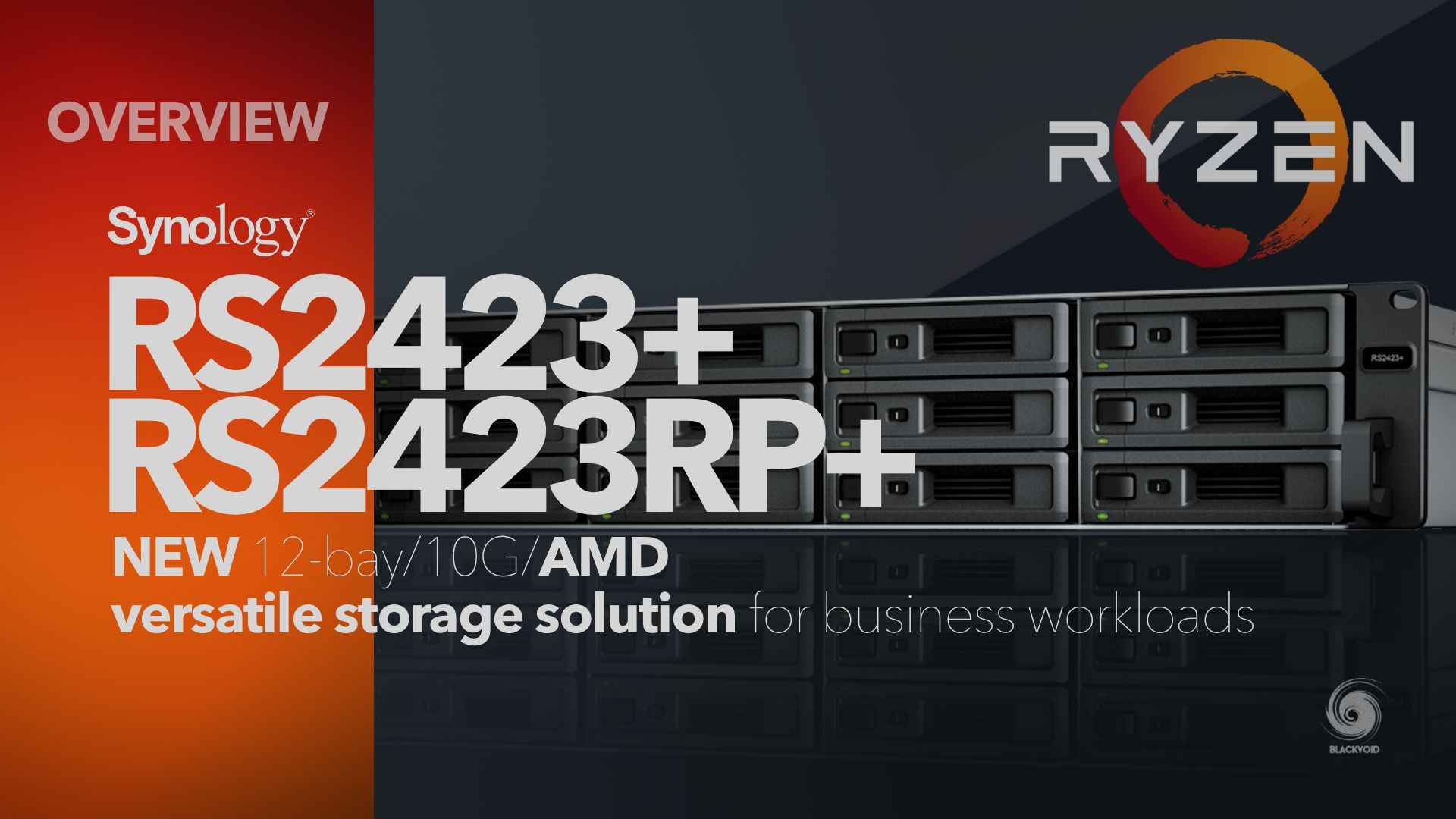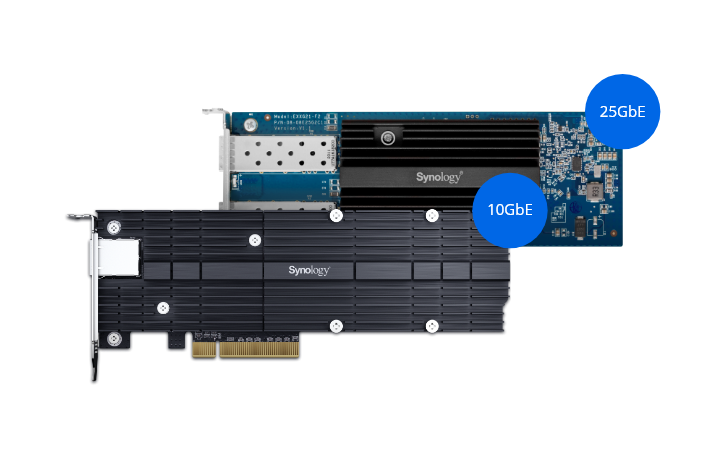
For those looking to upgrade or acquire a new NAS that is not in a desktop (DS) form but rather a rack version, good news! The new refreshed general-purpose 12-bay NAS has arrived. As a successor to the current RS2421+/RP+ model with a few new tricks and changes, let's see what the new RS2423+/RP+ has in store.
The RS2423+ and RS2423RP+ (redundant power) are versatile and cost-effective 2U 12-bay storage servers for central data storage and sharing, endpoint and server backup, surveillance management, and other business applications. With over 3,500/1,700 MB/s sequential read/write performance, up to 216 TB of raw storage, and the option to boost I/O speeds through SSD caching, the RS2423+ and RS2423RP+ provide flexible storage with strong built-in data protection capabilities.

The new 2U device is an upgrade to the previous model in terms of CPU, RAM, and I/O, as well as overall performance and speed. Designed with small and medium-sized businesses in mind, the RS2423+ will provide more than enough performance with the built-in quad-core AMD Ryzen V1780B CPU and 8GB of ECC DDR4 (up to 32GB). Upgraded from the previous generation (v1500B and 4GB of RAM), the new model also now has the built-in 10G along with dual 1GbE network adapters.
10G connectivity has become very important for Synology as they continue lacking 2.5 or 5G ports in all their mid-range devices (or any devices for that matter). In this particular one, the 10G built-in port replaced two out of four 1GbE resulting in the final setup that we have now.

Along the back on top of the network ports, there are two USB 3.2 Gen 1 ports and a single expansion port that will allow connecting one more 12-bay RX1223RP for a total of 24 bays. Finally, one Gen 3 x8 slot (x4 link) will allow for connecting up 10 or 25GbE network adapters, as well as an M.2 NVMe card for expanding the setup with needed cache considering that the RS unit does not have direct M.2 slots.


Solid Performance – Over 3,500/1,700 MB/s sequential read/write
throughput supports office-wide applicationsOn-Demand Expansion – Scale up to 24 drive bays and 432 TB of raw storage
with one Synology RX1223RP Expansion Unit
This being a 12-bay unit by default it supports both 2.5" and 3.5" hot swap drives with a very limiting compatibility list. At the moment, the list is dominated by Synology-branded disks, with several Seagate, WD, and Toshiba models as well. As with any purchase, be very careful when it comes to buying the drives as support might be withheld from you in case the setup is run with unsupported or incompatible models.
The main difference between RS2423+ vs the RS2423RP+ is the power management element. The former is running with a single 500W while the latter is using two 350W PSUs. Power consumption will of course depends on the setup, the model of the disks, and the services running, but we can expect it to be from around 35W in hibernation all the way to 90W+ during access. Certainly, a more powerful CPU, more RAM, and the introduction of a 10G network by default will bring a better experience but also a slightly bigger power bill as compared to the previous generation.
Comprehensive Backups – Protect your IT infrastructure with license-free solutions
for backup, replication, and recoveryAvailability Safeguards – Hot-swappable drives, online volume expansion, dual
power supplies (RS2423RP+), and high-availability clustering help keep services online
From RAID and file system support no actual surprises. Unlike the XS+ lineup, the + models do support Synology's SHR RAID type along with all the default ones (RAID 0,1,10,5,6…), and RS2423 models are no exception. BTRFS and EXT4 file systems are supported as well by default. This means that migration from older models or similar models will be possible, but keep in mind that the drive support might be a showstopper, so again, check the drive compatibility list on the Synology site.
As with most devices in this segment, the RS2423+ is covered with a three-year warranty with the possibility to extend it to five years via Extended Warranty Plus program.
